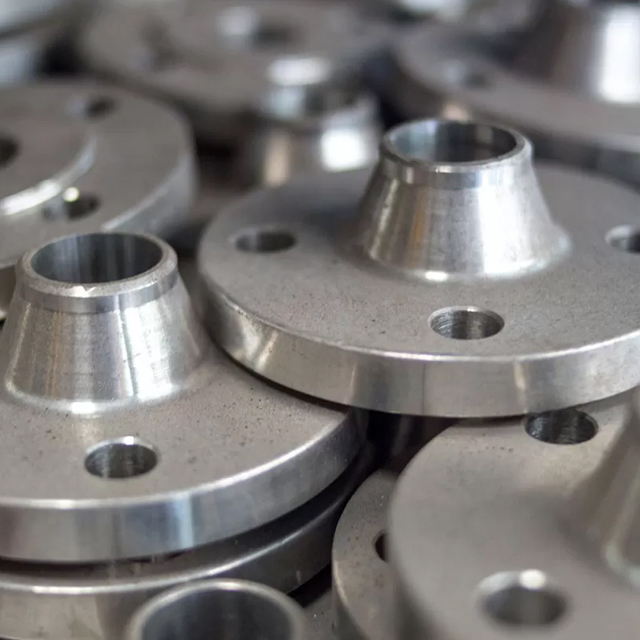About Us
The argument in favor of using filler text goes something like this: If you use real content in the Consulting Process, anytime you reach a review point you’ll end up reviewing and negotiating the content itself and not the design.
ConsultationContact Info
- Chicago 12, Melborne City, USA
- (111) 111-111-1111
- builder@gmail.com
- Week Days: 09.00 to 18.00 Sunday: Closed
Everything You Need to Know About Alloy Steel F5 Flanges: Properties, Benefits, and Applications
Sandvik, a trusted name in industrial piping solutions, offers premium-grade Alloy Steel F5 Flanges that meet international standards for performance and durability. Whether you're in oil and gas, power generation, or chemical processing, these flanges deliver the strength and reliability required for critical applications. This blog explores what Alloy Steel F5 Flanges are, their key advantages, uses across various industries, and the different types available.

Alloy Steel F5 Flanges are made from chromium-molybdenum alloyed steel, specifically designed to withstand high temperatures and pressure. The F5 grade falls under ASTM A182 specification, making it suitable for use in high-stress environments. These flanges are engineered for connecting pipes, valves, pumps, and other equipment to form a solid and leak-proof piping system.
One of the core benefits of Alloy Steel F5 is its excellent mechanical strength combined with corrosion and oxidation resistance. The molybdenum increases tensile strength, while chromium adds hardness and prevents rust. These properties allow the flanges to perform under extreme conditions such as thermal cycling, chemical exposure, and high-pressure environments. Alloy Steel F5 Flanges Manufacturers ensure these components maintain integrity in highly demanding applications.
In terms of advantages, Alloy Steel F5 Flanges offer exceptional durability and long service life. Their heat resistance makes them ideal for use in boiler systems, heat exchangers, and superheaters. They also support easy welding and fabrication, allowing engineers to tailor systems without compromising structural integrity. Additionally, their cost-effectiveness over time is a major win for industries looking to reduce maintenance and replacement costs.
Alloy Steel F5 Flanges Suppliers cater to multiple industries that demand high reliability. In petrochemical plants, they are essential for transporting volatile fluids. In power plants, they ensure safe transfer of steam and gases under high pressure. Refineries use these flanges in their distillation and cracking units. Even in the shipbuilding and offshore sectors, F5 flanges prove their worth by resisting saline and corrosive environments.
The different types of Alloy Steel F5 Flanges include:
Weld Neck Flanges: Known for their long tapered hub, they offer excellent stress distribution and are preferred for high-pressure applications.
Socket Weld Flanges: Ideal for small-diameter piping, these flanges provide high structural integrity and leak-proof connections.
Blind Flanges: Used to close pipe ends, these flanges are critical for pressure testing and system isolation.
Slip-On Flanges: Easy to install and cost-effective, commonly used in low-pressure applications.
Threaded Flanges: Best suited for systems where welding is not an option, allowing for easy disassembly and maintenance.
Lap Joint Flanges: Used with stub ends, ideal for systems requiring frequent inspection or cleaning.
As one of the most trusted Alloy Steel F5 Flanges Stockists, Sandvik maintains a robust inventory to serve global demands with fast turnaround times. Every product is tested for strength, finish, and dimensional accuracy to ensure it fits right the first time, every time.
With expanding global infrastructure projects and industrial growth, the demand for robust and reliable components continues to rise. Alloy Steel F5 Flanges Exporters like Sandvik play a crucial role in meeting this demand with products that guarantee performance, safety, and efficiency in even the harshest operating environments.
Specification of Alloy Steel F5 Flanges
| Alloy Steel Flanges Specification : | ASTM A182 / ASME SA182 |
|---|---|
| Dimension Standard : | ANSI/ASME B16.5, B 16.47 Series A & B, B16.48, BS4504, BS 10, EN-1092, DIN, etc. |
| Standard : | ANSI Flanges, ASME Flanges, BS Flanges, DIN Flanges, EN Flanges, etc. |
| Size : | 1/2" (15 NB) to 48" (1200NB) |
| Class / Pressure : | 150#, 300#, 600#, 900#, 1500#, 2500#, PN6, PN10, PN16, PN25, PN40, PN64 etc. |
| Flange Face Type : | Flate Face (FF), Raised Face (RF), Ring Type Joint (RTJ) |
| DIN Flanges : | DIN 2527, 2566, 2573, 2576, 2641,2642, 2655, 2656, 2627, 2628, 2629, 2631, 2632, 2633, 2634, 2635, 2636, 2637,2638, 2673. |
| JIS Flanges : | JIS B2220 5K, JIS B2220 10K, JIS B2220 16K, JIS B2220 20K |
| BS Flanges : | BS4504 PN 6, BS 4504 PN 10, BS4504 PN 16, BS4504 PN 25, BS4504 PN 40, BS 4504 PN 64, BS 4504 PN 100, BS 4504 PN 160, BS 4504 PN 250, BS 10, BS Table D, BS Table E, BS Table F, BS Table H. |

